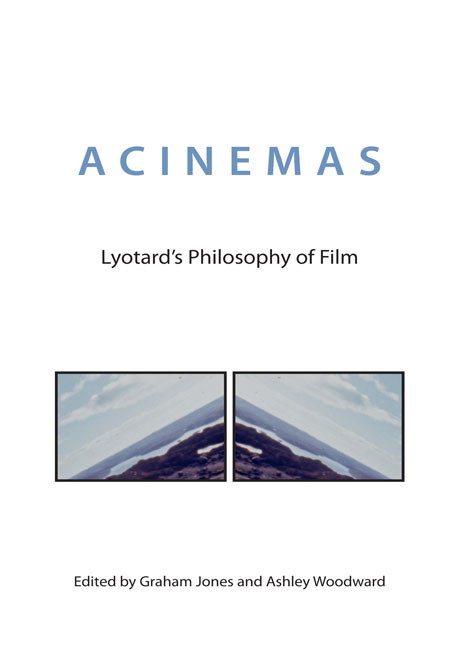Book contents
- Frontmatter
- Contents
- Acknowledgements
- Abbreviations
- Translators’ Note
- I Openings
- II Lyotard's Essays on Film
- III Approaches and Interpretations
- 8 Imaginary Constructs? A Libidinal Economy of the Cinematographic Medium
- 9 Lyotard and the Art of Seduction
- 10 Authorisation: Lyotard's Sovereign Image
- IV Applications and Extensions
- Appendices
- Notes on Contributors
- Index
9 - Lyotard and the Art of Seduction
from III - Approaches and Interpretations
Published online by Cambridge University Press: 23 June 2018
- Frontmatter
- Contents
- Acknowledgements
- Abbreviations
- Translators’ Note
- I Openings
- II Lyotard's Essays on Film
- III Approaches and Interpretations
- 8 Imaginary Constructs? A Libidinal Economy of the Cinematographic Medium
- 9 Lyotard and the Art of Seduction
- 10 Authorisation: Lyotard's Sovereign Image
- IV Applications and Extensions
- Appendices
- Notes on Contributors
- Index
Summary
Jean-François Lyotard's ‘Two Metamorphoses of the Seductive in Cinema’ comprises seventeen numbered paragraphs that range from observations on Gorgias and Plato's dialogue Menexenus (which also occur in a number of his other works) to remarks on two major twentieth-century filmmakers, Hans-Jürgen Syberberg and Francis Ford Coppola. Its subject is, ostensibly, two metamorphoses of the seductive in cinema, and Lyotard's aim is to describe seduction and its metamorphoses pragmatically. In what follows I offer a commentary on this treatment of seduction – or it might be more accurate to call them a succession of comments in that my aim is not so much to give an exposition of what Lyotard says, but to expose what he does, to make explicit the force of his argument. Eliciting the effect of Lyotard's argument through my ‘reading’, which is itself forceful, allows me to elucidate the complicity between what Lyotard calls ‘seduction’, the political and the philosophical.
SEDUCTION
In developing his linguistic pragmatics, Lyotard draws on the Wittgenstein of the Philosophical Investigations. As he remarks in The Postmodern Condition:
Wittgenstein, taking up the study of language from scratch, focuses his attention on the effects of different modes of discourse; he calls the various types of utterance he identifies along the way … language games. What he means by this term is that each of the various categories of utterance can be defined in terms of rules specifying their properties and the uses to which they can be put. (PC 10)
Viewed from this perspective seduction is a game played by the seducer and the seduced, the addressor and the addressee of the seductive utterance.
However, it is not the thought of Wittgenstein that alone informs Lyotard's analysis of the specific pragmatic properties of seduction. His account of the seductive power of discourse is worked out via an appeal to Gorgias and Plato. Gorgias, Lyotard notes, in the Encomium of Helen, remarks the ‘power of speech over the soul’ and likens it to ‘the effect of drugs on the bodily state’ (TM 55).
- Type
- Chapter
- Information
- AcinemasLyotard's Philosophy of Film, pp. 87 - 101Publisher: Edinburgh University PressPrint publication year: 2017



